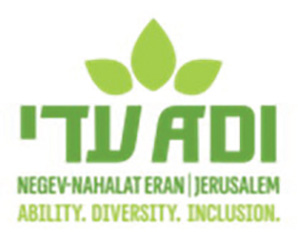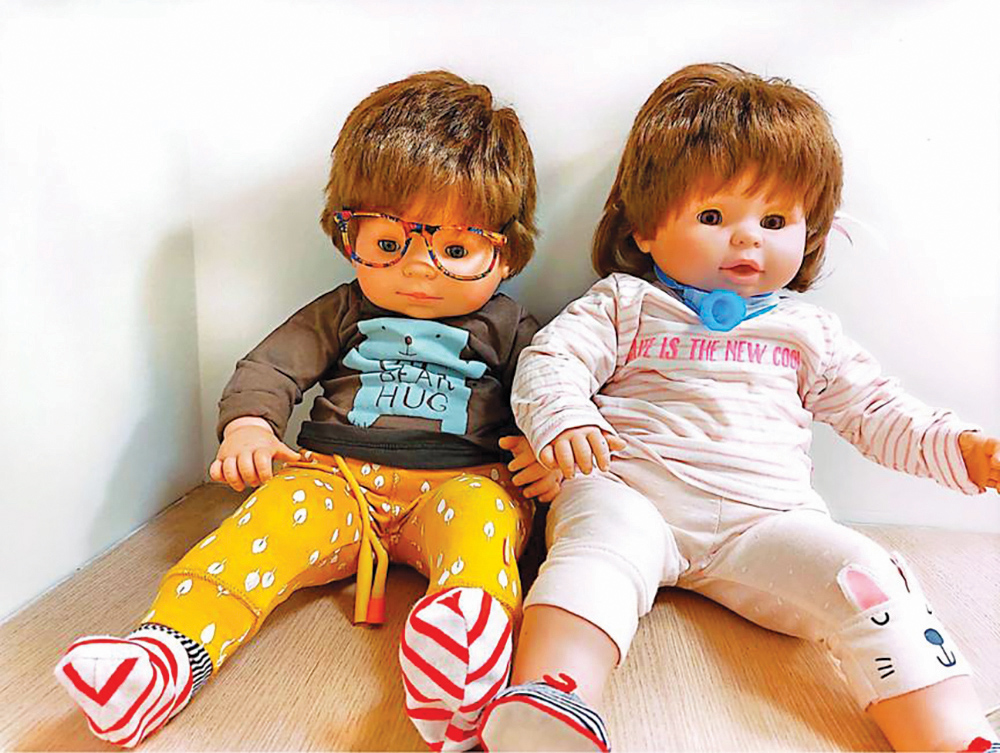
(Courtesy of ADI) Known worldwide for its specialized disability care and innovative inclusion programming, ADI (adi-israel.org) has taken its ingenuity to the next level by creating the perfect friends for its residents and special education students with severe disabilities—dolls that look just like them, complete with feeding and breathing tubes. Headed by ADI Jerusalem Special Educator Tami Gutman, the ‘Toy Like Me’ initiative transforms store-bought soft dolls into playtime twins that promote personal advancement through proper representation.
In recent years, a movement to develop dolls for children who have never seen accurate representations of themselves on the store shelves has spawned dolls with wheelchairs, limb differences, birthmarks, scars, albinism and medical equipment of all kinds. In this vein, when Gutman realized that the toys in the ADI Jerusalem classrooms did not fully represent the residents and special education students who played with them, she set out to create dolls that would mirror them.
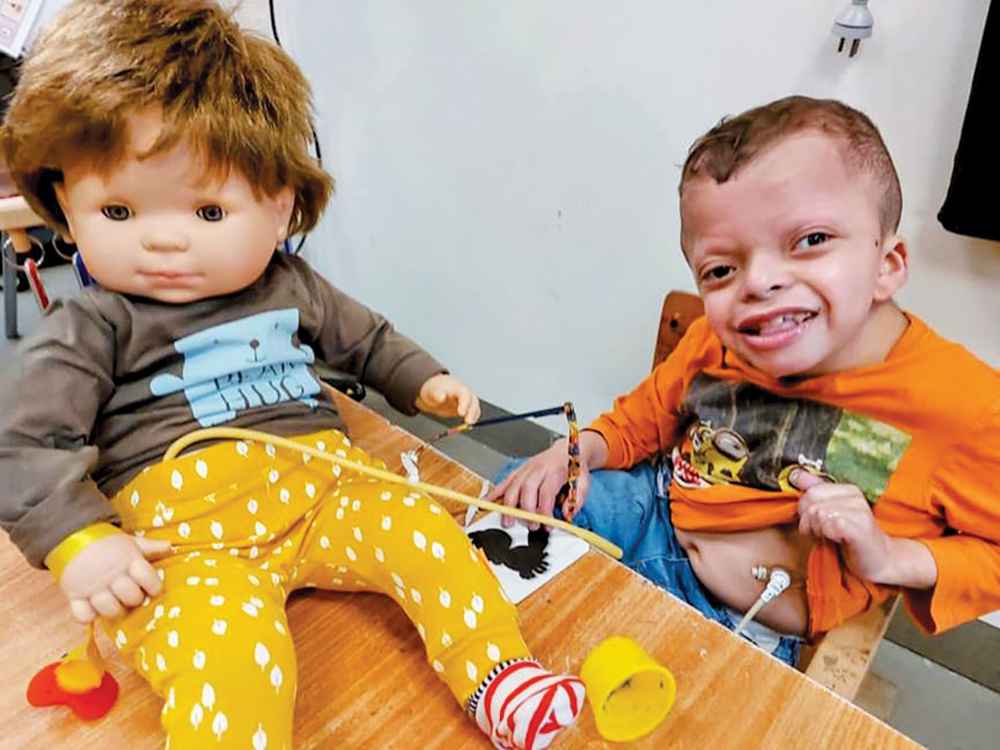
“Children want dolls they can relate to, dolls that look like them. For children with severe disabilities and complex medical conditions, dolls that mirror their life situations are not available in neighborhood toy stores, so I decided to do something about it,” said Gutman. “At ADI, we strive to give our children the best of everything, and if it doesn’t exist, we create it.”
Employing her experience as the director of ADI’s Sensory Library Program, for which she accessorizes books with sensory components to make stories more engaging for children with cognitive disabilities, Gutman upgraded the dolls by lovingly adding gastronomy feeding tubes, tracheotomy breathing tubes, and other medical equipment similar to those used by the ADI family members.
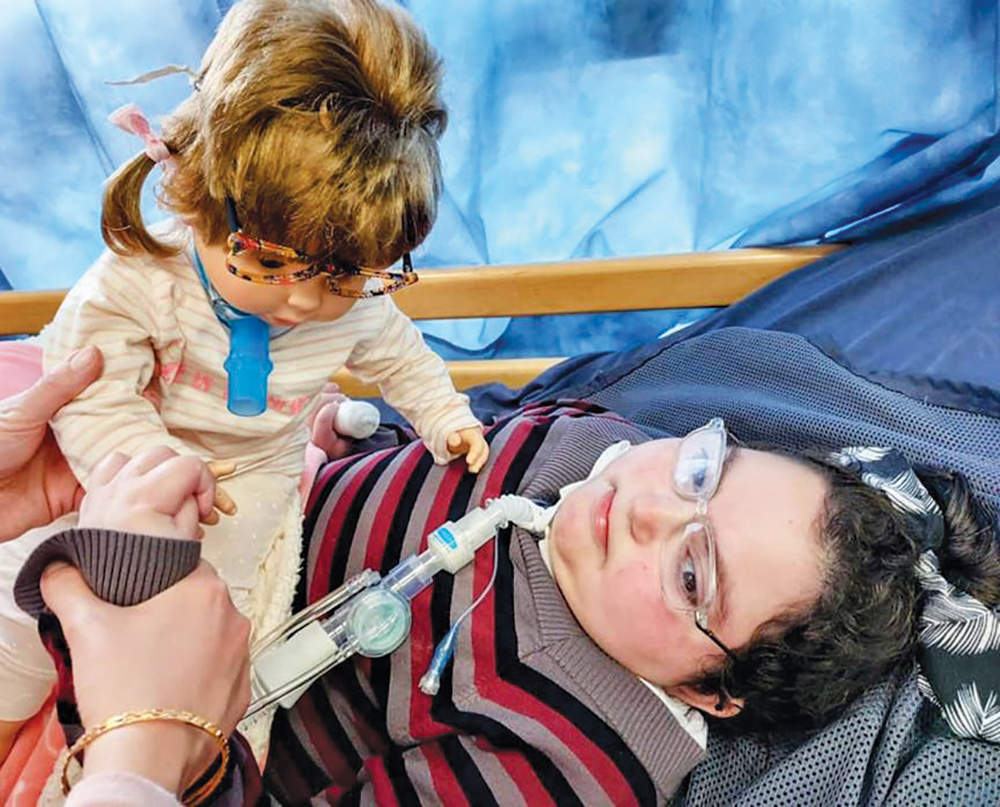
Playing with dolls enhances social and emotional development, strengthens motor and life skills, and stimulates children to express themselves. Gutman invested a great deal of thought, time and creativity into personalizing each one of the unique dolls, ensuring that the ADI residents and special education students could identify with their new friends.
“The dolls with disabilities were happily received by the children who knew from experience that they must handle the dolls gently and be careful not to disconnect the tubing,” explained Gutman. “I’ve seen with my own eyes how dolls like these help children make sense of their world and experiences and can make all the difference in their growth and development.”
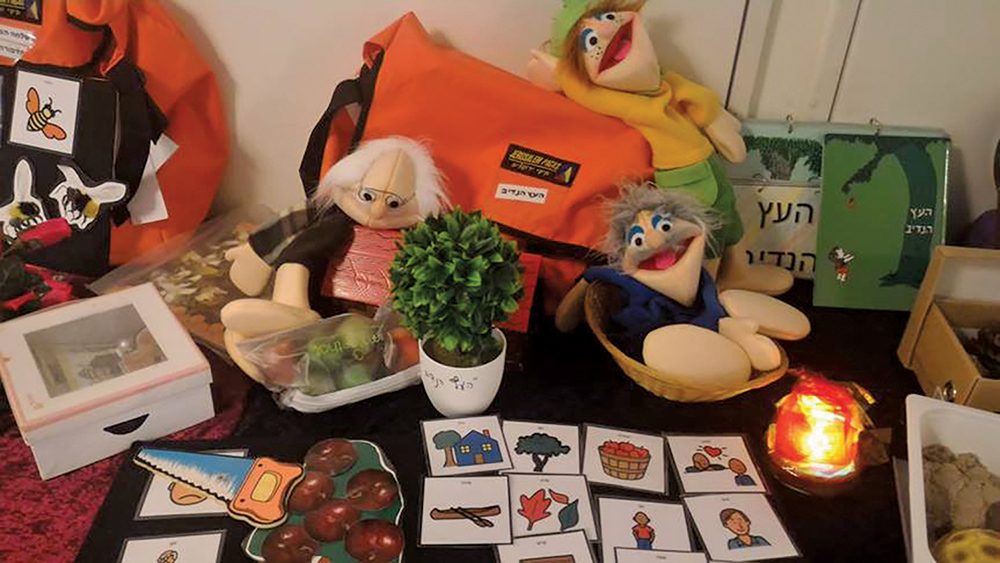
ADI provides its residents and special education students with the individualized growth plans and specialized services they need to grow and thrive, its rehabilitation patients with the treatments and therapies they need to heal and return to their lives, and the community at large with tangible opportunities for encountering disability, raising awareness and promoting acceptance.
To learn more about ADI and to donate, please visit adi-israel.org.
